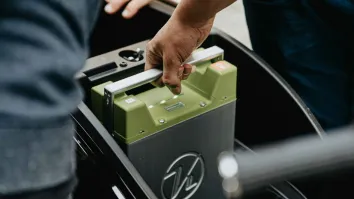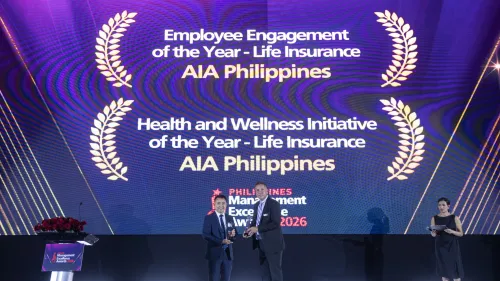
AkzoNobel steps up digital, green push to hit 2030 targets
The company seeks to halve carbon emissions across the full value chain by 2030.
Dutch paintmaker AkzoNobel is stepping up its digital and sustainability efforts, expanding e-procurement, remote monitoring, and supplier partnerships to improve transparency across its supply chain.
Operating in more than 150 countries with brands such as Dulux, International, Sikkens, and Interpon, the company had cut carbon emissions by 41% by 2024 (baseline 2018). It seeks to halve emissions by 2030 across the value chain and fully shift to recyclable or renewable materials in its own operations.
“The future of sustainable manufacturing requires a broad approach,” Farooq Ayub Khan, cluster manufacturing manager for Pakistan, Malaysia, Indonesia, and Vietnam at AkzoNobel, told Manufacturing Asia. “We combine environmental responsibility, supply chain resilience, and continuous innovation to achieve it.”
AkzoNobel’s projects address product design, plant efficiency, and resource use. It’s also in the process of phasing out hazardous inputs, whilst drought-prone locations are focused on cutting water consumption. Energy-saving measures have also lowered usage across sites.
Product innovation is a key part of its strategy. In Indonesia, Dulux Weathershield with Keep Cool Technology lowers indoor temperatures by as much as 5°C, reducing reliance on air conditioning.
In Pakistan, a plant gets 30% of its power from solar panels and features a Miyawaki mini forest designed to absorb carbon.
Digital tools are reshaping operations. Warehouse management systems and a lightweight manufacturing execution system have allowed sites to go paperless, while automation is streamlining processes from raw material handling to finished goods.
“Automation and digitalisation increase efficiency, reduce waste, and accelerate service to customers,” Khan said in an emailed reply to questions.
To strengthen innovation, AkzoNobel has relocated a regional research and development hub in ASEAN closer to production. This lets researchers, marketing staff, and plant teams collaborate more directly, with products tested at pilot scale before reaching the market.
The company closely tracks performance, from customer complaints—now on a downward trend—to employee satisfaction surveys and consumption of energy and water. These checks ensure that progress on sustainability targets remains on track.
AkzoNobel plans to expand automation, enhance digital-based quality controls, and improve customer experience.
“To achieve the ambitious 2030 targets, we need close collaboration with suppliers, customers, and industry partners,” Khan said.

















 Advertise
Advertise









